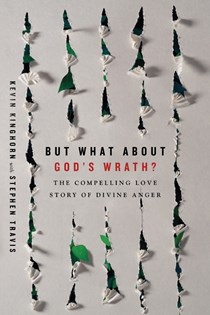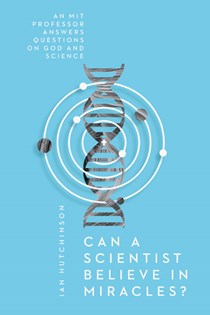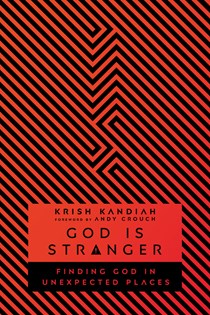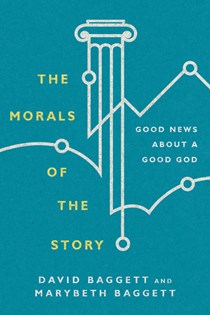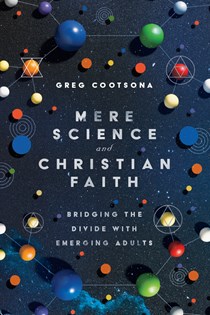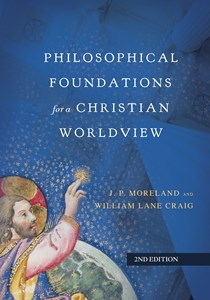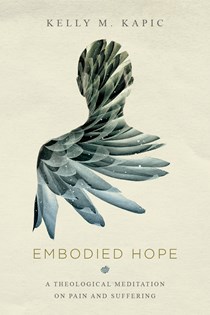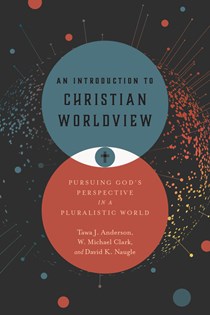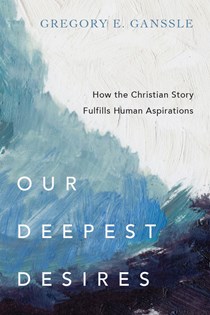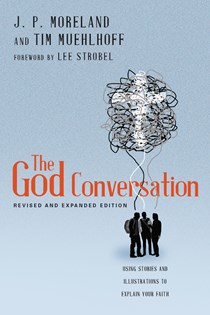Apologetics
-
But What About God's Wrath?
The Compelling Love Story of Divine Anger
by Kevin Kinghorn
With Stephen TravisHow can a loving God also be a God of wrath? Using a philosophically informed line of argument and a careful study of the relevant biblical texts, Kinghorn and Travis show how these two aspects of God's character can be reconciled. Instead of assuming that God's just response to people is incompatible with a loving response, the authors instead view God's love as a strictly essential divine attribute, with justice as a derivative of love.
-
Can a Scientist Believe in Miracles?
An MIT Professor Answers Questions on God and Science
Veritas Books
by Ian Hutchinson
Plasma physicist Ian Hutchinson has been asked hundreds of questions about faith and science. Is God’s existence a scientific question? Is the Bible consistent with the modern scientific understanding of the universe? Are there scientific reasons to believe in God? In this comprehensive volume, Hutchinson answers a full range of inquiries with sound scientific insights and measured Christian perspective.
-
God Is Stranger
Finding God in Unexpected Places
by Krish Kandiah
Foreword by Andy CrouchHave we missed the Bible’s consistent teaching that God is other, higher, stranger? Krish Kandiah offers us a fresh look at some of the difficult, awkward, and even troubling Bible passages, challenging us to replace our sanitized concept of God with a more awe-inspiring, true-to-the-Bible God. Allow yourself to be surprised by God as you find him in unexpected places doing the unexpected.
-
The Morals of the Story
Good News About a Good God
by David Baggett and Marybeth Baggett
For centuries the moral argument—that objective morality points to the existence of God—has been a powerful apologetic tool. In this volume, David and Marybeth Baggett offer a dramatic, robust, and even playful version of the moral argument, showing that it not only points to God's existence but that it also contributes to our ongoing spiritual transformation.
-
Mere Science and Christian Faith
Bridging the Divide with Emerging Adults
by Greg Cootsona
Emerging adults want to believe that science and faith can coexist peacefully, and Greg Cootsona argues that they can. In his book Mere Science and Christian Faith he holds out a vision for the integration of science and faith and how it can lead us more deeply into the conversations that confront the church today.
-
Philosophical Foundations for a Christian Worldview
by J. P. Moreland and William Lane Craig
This comprehensive and award-winning orientation to Christian philosophical foundations is now updated and expanded in a second edition, including enhanced arguments, updated bibliographies, and new chapters on atonement and the mind-body problem. This textbook from Moreland and Craig, two leaders in the field, is the keystone in any library of Christian philosophy.
-
Embodied Hope
A Theological Meditation on Pain and Suffering
by Kelly M. Kapic
Kelly M. Kapic meditates on how our suffering—particularly our physical suffering—relates to the Christian faith. This is not a theodicy or a book of easy answers. It is an invitation to reshape our understanding of suffering into the image of Jesus. What we discover is that in Christ and through his church, God displays his deep love and provision for his people.
-
An Introduction to Christian Worldview
Pursuing God's Perspective in a Pluralistic World
by Tawa J. Anderson, W. Michael Clark, and David K. Naugle
Why do worldviews matter? What characterizes a Christian worldview? Part of being a thoughtful Christian means being able to understand and express the Christian worldview as well as developing an awareness of the variety of worldviews. Well organized, clearly written, and featuring aids for learning, this is the essential text for either the classroom or for self-study.
-
Our Deepest Desires
How the Christian Story Fulfills Human Aspirations
by Gregory E. Ganssle
As human beings, we are created with universal longings. Where can our restless hearts find fulfillment? Philosopher and apologist Greg Ganssle argues that our widely shared human aspirations are best understood in light of the Christian story, and that the good news of Jesus Christ makes sense of—and fulfills—our deepest desires.
-
The God Conversation
Using Stories and Illustrations to Explain Your Faith
by J. P. Moreland and Tim Muehlhoff
Foreword by Lee StrobelEvery day it seems more difficult to explain to others what we believe and why. When our arguments fail to persuade them, what then? J. P. Moreland and Tim Muehlhoff say that the best way to win over others is with a good story. In this expanded edition of their classic book, the authors give practical coaching and illustrations to help us communicate our faith more effectively.


